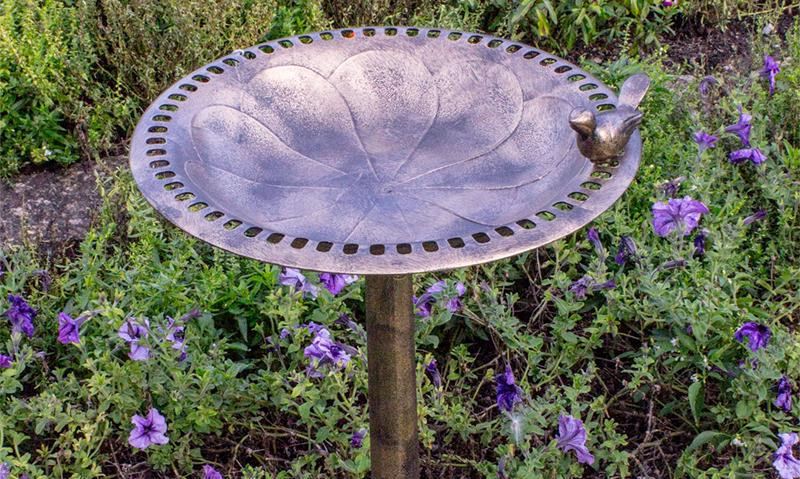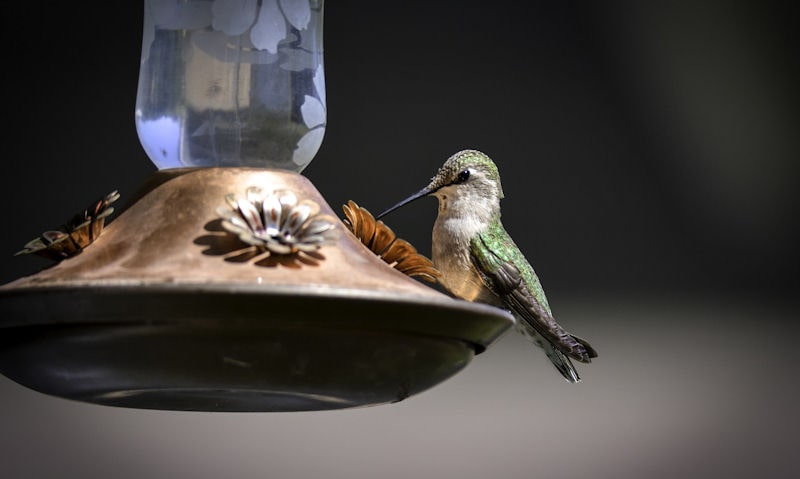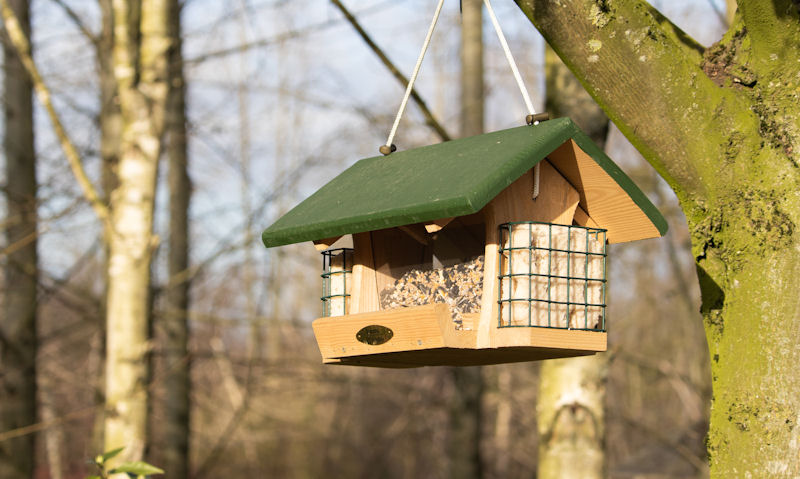Are resin bird baths safe for birds
Now that the resin is set the plastic bird bath is ready for sale so must be safe to use with no risk of toxic substances present on the bird bath body.
Bird baths are safe for birds to come into contact with due to the non toxic resin used. Risks of a resin bird bath is low, with a plastic bird bath surface being quite slippery with no rugged surface for birds to get a grip. Safe as they are microplastic can bleed into the water but is safe for birds to ingest at this time.
Safe as they are, made in resin bird baths can be used for many years to come with little to no issues arising due to heavy use.
Concentrate on replenishing the resin bird bath with fresh water as often as you can, followed up with a regular clean of the bird bath two to three times a week - with risks of bacteria forming especially in hotter weather.
Resin isn't bad for birds nor can it be as its non toxic yet is unlikely to form into a liquid substance it once was - that can be ingested - and if it can it still will be safe for birds.
Resin is now a plastic molded bird bath so its safe to say its 100% safe for birds or even people to come into contact with.
Resin can be overcome by weathering but not how you believe it would be. Rather than a nice weathering effect you get in a stone bird bath; plastic resin bird baths simply become dirty - filled with stains, a grubby surface and impossible to clean properly.
At this point a resin bird bath would have to be replaced by a new, cheap bird bath.
Whilst there's no risk to a birds health, of course birds can be seen to possibly get into more trouble while entering the depths of a plastic bird bath.
With lack of a rugged surface below the water line the plastic remains smooth and therefore slippery. With that in mind I ask you to add pebbles to the water along with a rock or two to create a safer environment within a resin bird bath bowl.
Resin bird baths are safe
Good news is made in resin plastic bird baths are safe for birds with few issues of concern rising up later.
To begin with resin in its cured form is a non toxic substance that can do no harm to birds or people - of which resin in its heated up, melted form ready to be poured into molds still cannot cause health issues, unless you include burns.
Resin bird baths when made available to buy are long past their curing stage, to which is safe for people to handle and birds to use.
What you end up with is a durable, safe for outdoor use bird bath that still has a little flexibility in it - no thanks to additional safe, non toxic chemicals added.
Resin bird baths are safe to use for common backyard birds even if ingested.
Unlikely I know but any risk of birds attempting to eat the resin now in plastic form will see no harm done to them.
Non-toxic, bird safe resin
While there is such a thing as dangerous resin bird baths that could exist, this day and age made in toxic resin bird baths is rare.
Made in resin plastic bird baths are fully non toxic to which cannot cause a tummy upset or make birds poorly due to the very rare case microplastic is ingested.
Manufacturer's who make bird baths have to make it remember, thus these companies won't want to risk putting their workforce in danger by making them work around a toxic substance that could be inhaled as its melted during production.
And where resin can be dangerous to ingest in liquid form this will never happen once the mold as been set.
In no way can a rock solid resin bird bath become liquefied again, nor can it soften enough to end up in the bellies of our wild birds while it remains in your yard.
Treat resin bird baths much like you would a made in metal bird bath; its fully safe to touch although in time outside contamination after weeks or months of use can turn it into an unsafe to touch object.
Bird baths made in resin are safe for birds but this isn't to say bird baths remain sanitary forever - as bacteria can be present even on a well kept bird bath.
Risk of resin bleeding to water
Whilst I will say bird baths made in resin are not a bad thing per se, but there can be trouble ahead with the older the bird bath gets.
Its nothing to be too concerned about but in time resin can soften to which it will roughen up in the bowl constantly submerged in water - with micoplastic possibly bleeding into the bird bath water.
I will say microplastic doesn't harm wildlife but it can remain in their digestive system which can lead to health issues down the road.
Its currently unknown what risks are involved, yet millions of birds could be carrying microplastic in their tummies due to filling up on microplastic, which is unavoidable.
With that in mind do favor a stone bird bath as its my personal best material for a bird bath, with an option for a made in metal - such as copper - bird bath material to consider.
While there's a risk of microplastic - not liquid plastic by the way - bleeding into the water source, its not on you to be too concerned about it at this time. Focus on freshening up the water as often as you can whilst throwing out the past its best resin bird bath.
Can succumb to weathering
Unfortunately with made in resin bird baths they can't stay brand new forever, to which weathering can even succumb to a plastic bird bath.
Weathered effect plastic resin bird baths is less aggressive than say a weathered stone bird bath - yet weathering on plastic is far less attractive than on more natural stone.
When resin ages it appears more unsightly, together with what is a messy bird bath that can no longer be kept clean as the surface becomes unmanageable due to age.
And while plastic bird baths have the benefit of less algae growing, its that mess in the water bowl that can deter birds from ever using it.
What you can do at this point is clean the bird bath the best way you know how, then you can paint plastic bird baths to give it a new lease of life. It probably won't appear smooth with bumps visible, but it can be a safe option.
If your made in resin bird bath succumbs to weathering it will appear as dirt or staining that cannot be lifted up - I then suggest you replace it with a brand new bird bath - in which I recommend a stone bird bath this time.
Conclusion
Now that the recycled plastic has been heated up, melted and re-shaped into pellets; there pellets are then heated up again to melt - to be poured into a bird bath mold.
At the point of the molding process the bird bath would be classed as resin only; now you end up with a made in plastic bird bath rather than what is referred to as resin bird baths.
Resin bird baths are safe at the point of sale with resin in its melted form can be a dangerous substance due to heat, rather than any levels of toxicity.
What you end up with is a solid yet tough, durable plastic bird bath that is safe to hydrate, bathe or even feed off for wild birds.
No coloring or paint can bleed into the water because non toxic dye was added at the point of manufacture - with any green, copper or metal effect color mixed up in the resin plastic that cannot bleed out.
Resin bird baths are safe to use because they are non toxic at this point.
Risk of anything bleeding into the water source is microplastic, but for now there's nothing to worry about or anything you can do about it.
Prioritize providing your backyard birds fresh water in the bird bath by cleaning it once or twice a week during use - to delay the bird bath aging process as seen in weathering.
Plastic bird baths can succumb to weathering, only it comes to a point where the resin bird bath surface appears unsightly yet can't be cleaned up of any grime or stains.
Resin bird baths do have an expiry date to which it would be when it can't be kept clean any more. Bird baths will remain safe to use by birds - and by you for that matter - but in time the unsightly appearance will eventually call for a brand new plastic bird bath.


